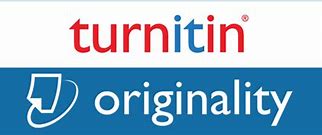PENGARUH KNOWLEDGE MANAGEMENT TERHADAP KINERJA KARYAWAN DIMEDIASI LEARNING ORGANIZATION DI BPJS KETENAGAKERJAAN PUSAT JAKARTA
DOI:
https://doi.org/10.47313/jib.v41i70.928Keywords:
Employee performance, influence, Tacit knowledge, Explicit Knowledge, Support Leadership, Technology, Learning organizationAbstract
The Influence of Knowledge Management on Employee Performance in Mediation Learning Organizations at the Jakarta Central Employment BPJS.Human resources are very important in improving a company or organization. Where the resources in question are all employees in the company from the lowest level to the highest level incorporated in the work. Each employee can make a good or bad contribution to the company because the company's achievements or disasters depend on the performance of its employees. Therefore, management must always be developed to realize the importance of improving employee performance through Knowledge Management in Mediation. Learning organizations play an important role in improving the performance of their employees so that they are seen as affecting the company or organization. This paper aims to study the effect, Knowlegde Management on employee performance mediated by learning organizations to provide advice on how companies can improve the performance of their employees through effective programs where Knowledge Management has four variables. For independent variables: Tacit Knowledge (X1), Explicit knowledge (X2), Support leadership (X3), and Technology (X4). The dependent variable or Mediation is Learning Organization (Y1) and Performance (Y2). The research approach used for this study is in accordance with quantitative research, namely interviews, observations, and questionnaires. The model was analyzed using smartPLS 2.0 statistical software. This survey-based data was collected from 100 respondents. This study found that Tacit knowledge, Explicit Knowledge, Support Leadership and Technology had a positive and significant effect on employee performance mediated by Learning organizations.References
Arikunto, Suharsimi. 2010. Prosedur Penelitian Suatu Pendekatan Praktek. Jakarta:Rineka Cipta.
Arifin Muftahol, 2016. Pengaruh Knowledge Management, Kompetensi, Motivasi, Terhadap Kinerja Karyawan, Journal “PERFORMANCE” Bisnis & Akutansi Volume VI, No.1,Universitas Wiraraja. Maret 2016.
Boby T. Warouw, L. Kawet, Knowledge Management Terhadap Kinerja Operasional, Jurnal EMBA Vol.2 No.1, Hal. 234-242. Maret 2014.
Carrillo, P.M., Anumba, C.J., dan Esther Ly. 2004. “Knowledge
Management Practices of Construction Project Managers”,
Association of Researchers inConstruction Management, Vol. 1,
-26.
Davenport, Thomas H, & P rusak . 1998. Working Knowledge: How Organizations Manage What They Know, First Edition. Harvard Business School Press.Boston, Meassachuss.
Dessler Gary. Manajemen Sumber Daya Manusia. Jakarta: Salemba Empat. 2015
Jackson dan Mathis. 2002.Manajemen Sumber Daya
Manusia,EdisiPertama.Yogyakarta: Salemba Empat.
Kosasih, Pengaruh Knowledge Management Terhadap Kinerja Karyawan, Jurnal Manajemen Perhotelan, VOL 3, NO.2 : 80-88, September 2007
Mangkunegara, A.P. 2005. Evaluasi Kinerja Sumberdaya Manusia. Refitka Aditma.Bandung.
Muralidhar, S. 2000. Knowledge Management: A Research Scientist’s PerspectiveIn T.KSrikantaiah & M.E.D. Koenig (Eds). ASIST Monograph Series.
Munir, N. 2008.Knowledge Management Audit : Pedoman Evaluasi Kesiapan Organisasi Mengelola Pengetahuan.Jakarta: Penerbit PPM.
Mondy R Wayne. Manajemen Sumber Daya Manusia. Penerbit Erlangga.
Nawawi, Ismail. 2012. Manajemen Pengetahuan (Knowledge management)
Teori danAplikasi dalam Mewujudkan Daya Saing. Bogor: Penerbit
Ghalia Indonesia
Nonaka, I., & Tekeuchi, H. 1995. The Knowledge Creating Compeny: How
JapaneseCompanies Create Dynamics of Innovation.Oxford
University Press. NewYork.
Natalia Emarya. “JURNAL GAUSSIAN, Volume 6, Nomor 3 Halaman 313-
Mahasiswa Departemen Statistika FSM UNDIP, Jawa tengah,
Sugiyono. 2014. Metode Penelitian Kuantitatif Kualitatif dan R&D.
Bandung: CV Alfabeta.
Sangkala. 2007 .Knowledge Management: Suatu pengantar Memahami
BagaiamanaOrganisasi Mengelola Pengetahuan Sehingga Menjadi
Organisasi yang Unggul. Jakarta. Rajawali Press.
Senge, P M. 1990. The Fifth Discipline: The Art and Practice of the
LearningOrganization, New York: Doubleday.
Simamora, Henry. 1997. Manajemen Sumber Daya Manusia. Yogyakarta :
STIE YKPN
Solimun, 2002.Structural Equation Modelling (SEM) Lisrel dan Amos,
Malang, Penerbit Universitas Brawijaya.
Solimun, 2008, Memahami Metode Kuantitatif Mutakhir: Structural Equation
Modeling & Partial Least Square, Program Studi Statistika FMIPA
Universitas Brawijaya.
Uslima, Amna Dadi. “ Pengaruh Knowledge Management Terhadap Kinerja
Karyawan Dimediasi Learning Organization di PT. Bank Muamalat
Indonesia Kantor Cabang Palembang. Tesis Program Magister
Manajemen Universitas Islam Indonesia, Yogyakarta, 2018.
Widodo Eko Suparno. Manajemen Pengembangan Sumber Daya Manusia.
Yogyakarta: Pustaka Pelajar. 2015.
Wijanto, HS. (2008). Structural Equation Modeling (SEM) dengan LISREL
8: Konsep & Tutorial, Cetakan Pertama, Jakarta, Penerbit Graha Ilmu,.








